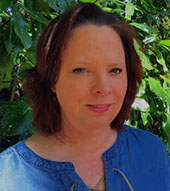 Wish I could have been at this party: Ciclops Cyderie and Brewery in Spartanburg, SC created a beer release of “Sense and Sprucability – A Writer’s Tale,” based on a recipe by home brewer Jane Austen to celebrate the tenth anniversary of the Converse College Low-Residency MFA. At the same event, South 85 Journal, the semi-annual online literary journal published by the MFA program, welcomed Lisa Hase-Jackson [pictured] as their new Managing Editor. Hase-Jackson is herself a published poet and served as Review Editor of 85 South Journal in the past. Read more about the upcoming change here.
Wish I could have been at this party: Ciclops Cyderie and Brewery in Spartanburg, SC created a beer release of “Sense and Sprucability – A Writer’s Tale,” based on a recipe by home brewer Jane Austen to celebrate the tenth anniversary of the Converse College Low-Residency MFA. At the same event, South 85 Journal, the semi-annual online literary journal published by the MFA program, welcomed Lisa Hase-Jackson [pictured] as their new Managing Editor. Hase-Jackson is herself a published poet and served as Review Editor of 85 South Journal in the past. Read more about the upcoming change here.
NewPages Blog
At the NewPages Blog readers and writers can catch up with their favorite literary and alternative magazines, independent and university presses, creative writing programs, and writing and literary events. Find new books, new issue announcements, contest winners, and so much more!
‘This is Portland’ by Alexander Barrett & Andrew Dickson
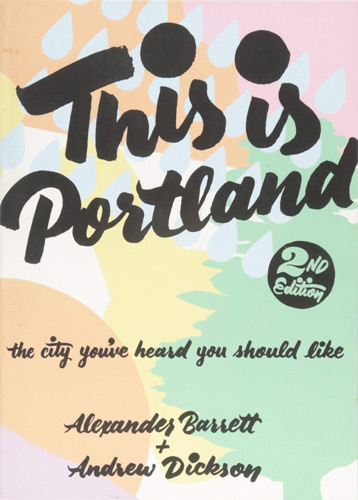 I walked into Powell’s City of Books for the first time, turned left, and there it was proudly displayed on a table of Portland wares and other travel books: This is Portland, 2nd ed. But, allow me to back up and tell you the whole story from the beginning . . .
I walked into Powell’s City of Books for the first time, turned left, and there it was proudly displayed on a table of Portland wares and other travel books: This is Portland, 2nd ed. But, allow me to back up and tell you the whole story from the beginning . . .
Continue reading “‘This is Portland’ by Alexander Barrett & Andrew Dickson”
Spread the word!
‘Ill Angels’ by Dante Di Stefano
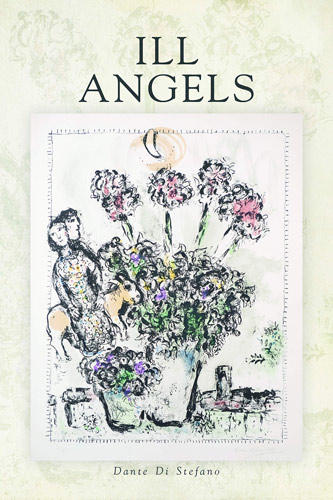 Dante Di Stefano creates a fascinating read of precise opinions and clever phrasing with poetry in his new book, Ill Angels. If I were to divide it roughly into subject chapters, one would be musicians, another would be portraits, then love poems to his wife, verses about America, and poems for his students. Throughout the book, a characteristic worthy of attention is his skill in giving fresh meaning to words.
Dante Di Stefano creates a fascinating read of precise opinions and clever phrasing with poetry in his new book, Ill Angels. If I were to divide it roughly into subject chapters, one would be musicians, another would be portraits, then love poems to his wife, verses about America, and poems for his students. Throughout the book, a characteristic worthy of attention is his skill in giving fresh meaning to words.
Spread the word!
American Life in Poetry: James Davis May
American Life in Poetry: Column 745
BY TED KOOSER, U.S. POET LAUREATE
The following poem by James Davis May, published in 32 Poems Magazine, has a sentence I’d like to underline, because it states just what I look for in the poems I choose for this column: “We praise the world by making / others see what we see.” Here we have moonflowers opening, for a man and his daughter, and for us. The poet lives in Georgia and is the author of Unquiet Things from Louisiana State University Press.
 Moonflowers
Moonflowers
Tonight at dusk we linger by the fence
around the garden, watching the wound husks
of moonflowers unclench themselves slowly,
almost too slow for us to see their moving—
you notice only when you look away
and back, until the bloom decides,
or seems to decide, the tease is over,
and throws its petals backward like a sail
in wind, a suddenness about this as though
it screams, almost the way a newborn screams
at pain and want and cold, and I still hear
that cry in the shout across the garden
to say another flower is about to break.
I go to where my daughter stands, flowers
strung along the vine like Christmas lights,
one not yet lit. We praise the world by making
others see what we see. So now she points and feels
what must be pride when the bloom unlocks itself
from itself. And then she turns to look at me.
We do not accept unsolicited manuscripts. American Life in Poetry is made possible by The Poetry Foundation (www.poetryfoundation.org), publisher of Poetry magazine. It is also supported by the Department of English at the University of Nebraska, Lincoln. Poem copyright ©2018 by James Davis May, “Moonflowers,” from 32 Poems Magazine (Number 16.2, Winter, 2018). Poem reprinted by permission of James Davis May and the publisher. Introduction copyright ©2019 by The Poetry Foundation. The introduction’s author, Ted Kooser, served as United States Poet Laureate Consultant in Poetry to the Library of Congress from 2004-2006.
Spread the word!
Final Family Matters Competition Winners
Glimmer Train has chosen the winning stories for their final Family Matters competition. This award was given for a short story about families of any configuration.
 1st place goes to Robin Halevy [pictured] of Big Pine Key, Florida, who wins $2500 for “Bright Ideas for Residential Lighting.” Her story will be published in Issue 106, the final issue of Glimmer Train Stories. This will be her first fiction publication.
1st place goes to Robin Halevy [pictured] of Big Pine Key, Florida, who wins $2500 for “Bright Ideas for Residential Lighting.” Her story will be published in Issue 106, the final issue of Glimmer Train Stories. This will be her first fiction publication.
2nd place goes to Arthur Klepchukov of Germantown, Maryland, who wins $500 for “The Unfinished Death of My Grandfather.” His story will also be published in Issue 106 of Glimmer Train, increasing his prize to $700.
3rd place goes to Christa Romanosky of Tulsa, Oklahoma, who wins $300 for “Ways to Light the Water on Fire.” Her story will also be published in Issue 106 of Glimmer Train, increasing her prize to $700.
Here’s a PDF of the Top 25.
Spread the word!
Bending Genres Monthly Online Workshops
 Bending Genres online literary journal offers monthly online weekend genre workshops. For $111 each, writers can sign up for “Mutate Through the Five Elements: Flash Your Fleshy Pearls” July 12- 14 with Meg Tuite, “Opening the Back Door: Absurdism as a Way to Truth” August 23 – 25 with Nancy Stohlman [pictured], and “Human Typography: Sculpting Surprising, Broken – and Real – Characters for More Compelling Stories” September 20 – 22 with Robert Russell. For more information about each workshop and registration, click here.
Bending Genres online literary journal offers monthly online weekend genre workshops. For $111 each, writers can sign up for “Mutate Through the Five Elements: Flash Your Fleshy Pearls” July 12- 14 with Meg Tuite, “Opening the Back Door: Absurdism as a Way to Truth” August 23 – 25 with Nancy Stohlman [pictured], and “Human Typography: Sculpting Surprising, Broken – and Real – Characters for More Compelling Stories” September 20 – 22 with Robert Russell. For more information about each workshop and registration, click here.
Spread the word!
About Place and Dignity as an Endangered Species
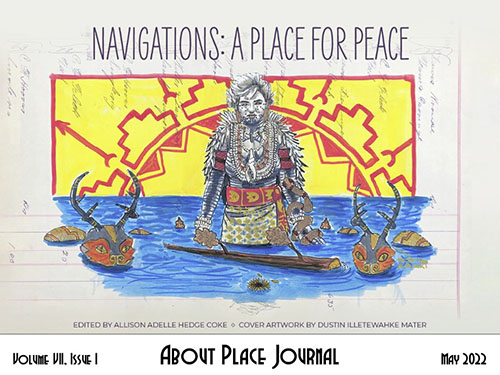 Published by the Black Earth Institute, dedicated to re-forging the links between art, spirit, and society, the May 2019 issue of About Place is themed “Dignity As An Endangered Species.”
Published by the Black Earth Institute, dedicated to re-forging the links between art, spirit, and society, the May 2019 issue of About Place is themed “Dignity As An Endangered Species.”
Issue Editor Pamela Uschuk notes that the editors “chose work that addressed the question, what is dignity?” from the starting point that “dignity is endangered during these times.” Assistant Editor CMarie Fuhrman asserts, “It is necessary that we begin to define, for ourselves and as a Nation, that which makes us human, humane.” And Assistant Editor Maggie Miller explores the concept of dignity and closes her preface: “With chin up, shoulders back, we too go forward – with dignity given not taken away.”
Contributors to the issue include Rita Dove, Joy Harjo, Jacqueline Johnson, Patricia Spears Jones, Fenton Johnson, Patricia Jabbeh Wesley, Linda Weasel Head, Kelle Groom, Maria Melendez Kelson, Cornelius Eady, Sagirah Shahid, Inés Hernández-Ávila, Gerald L. Coleman, K.LEE, K. Eltinaé, and Kimberly Blaeser.
Submissions for the next issue of About Place Journal are being accepted until August 1, 2019 on the theme: “Infinite Country: Deepening Our Connection to Place, Culture and One Another.” Editor Austin Smith and Assistant Editors Taylor Brorby and Brenna Cussen Anglada.
Spread the word!
Lit Mag Covers :: Picks of the Week
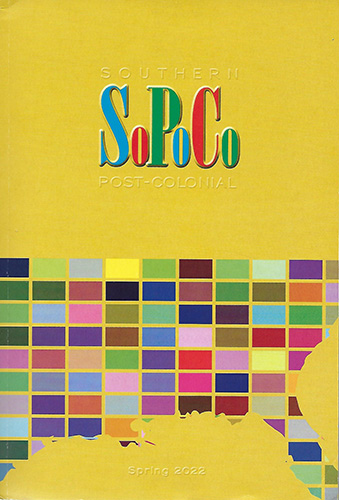
Toyin Ojih Odutola is the featured artist on the cover and inside the Summer 2019 issue of The Georgia Review. Odutola is “a visual artist consumed by the literary. Her drawings of figures are often cloaked in narrative allusions, and the build-up of marks on the page becomes a language which can be read.” The introduction and portfolio of her work can be seen here.

Rise, an archival ink jet print of a portrait of Lauren Schad of the Cheyenne River Lakota tribe by photographer Leah Rose is featured on the 13.1 2019 cover of basalt. Leah Rose is a Native American artist of the Keweenaw Bay Ojibwa tribe who writes, “Reconnecting with my Anishinaabe heritage has become my calling.” See more about her and her work here.
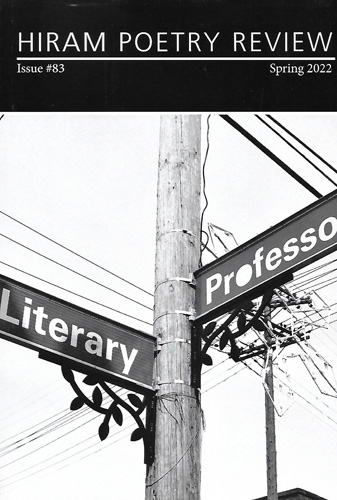
Editorial Assistant Danni Lynn McDonald is credited for the clever photo on the Spring 2019 Hiram Poetry Review cover: each reader holding a back issue of the publication to their face. Exactly how I found myself moments later, engrossed in my reading!
Spread the word!
Driftwood Press – Issue 6.1
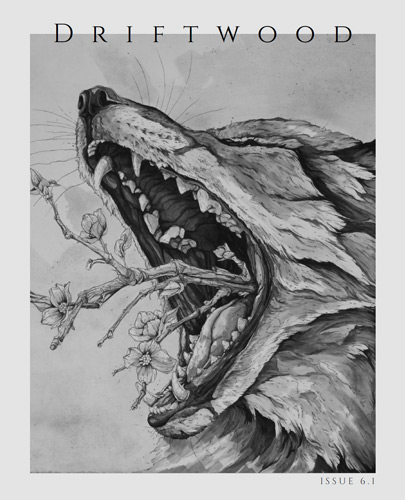 In 2018, Driftwood Press began accepting graphic work for their book publishing arm, and as readers wait for their chance to pick up a new graphic novel, they can check out the graphic work in the literary magazine. The current issue published at the start of 2019 features three selections in graphic works: “LaughTrack” by J. Collings, “The Salton Sea” by Cindy House, and “Émigré Animals” by Jason Hart.
In 2018, Driftwood Press began accepting graphic work for their book publishing arm, and as readers wait for their chance to pick up a new graphic novel, they can check out the graphic work in the literary magazine. The current issue published at the start of 2019 features three selections in graphic works: “LaughTrack” by J. Collings, “The Salton Sea” by Cindy House, and “Émigré Animals” by Jason Hart.
In “The Salton Sea,” House writes of her young son who, after refusing to complete a project, is given an alternate assignment at school. House’s eager willingness to patiently teach her poet son how to navigate in a world that doesn’t completely suit him is palpable in her poetic language and minimal illustrations, a touching piece.
Hart uses topiary animals to explore the immigrant experience in “Émigré Animals,” a man showcasing his resiliency as he creates the animals of his home country along the streets of his new home. The images of this comic reminded me of a children’s book, and I could easily see Hart’s topiary artist inhabiting a longer, expanded story.
“LaughTrack” is creative in its wordlessness; the only dialogue in the comic are streams of “hahahaha” laughter written in red. A man, miserable in his day to day life, feeds off the laughter he gleans from others, culminating in one final letdown. Despite the sullen tone hanging over the comic, the bright colors and sketchy lines make for a visually enjoyable read.
None of the three comics in Issue 6.1 of Driftwood Press are alike. Each brings something different to the table—different art styles, writing styles, subject matter—and I look forward to discovering even more comics offered in future issues and novels from Driftwood Press.
Review by Katy Haas
Spread the word!
Editors Talk Poetry Acceptances
The editors of Frontier Poetry, in keeping with their mission “to provide practical help for serious writers,” especially emerging poets, has a series of interviews – Editors Talk Poetry Acceptances – with “great editors from around the literary community.” Frontier Poetry asks for “frank thoughts on why poems may get accepted/rejected from their own slush pile of submissions, and what poets can do to better their chances.”
 Adding an interview almost every month, Frontier Poetry has so far interviewed Kristin George Bagdanov of Ruminate Magazine, Rick Barot of New England Review, Chelene Knight of Room, Esther Vincent [pictured] of The Tiger Moth Review, Talin Tahajian of Adroit Journal, J.P. Dancing Bear of Verse Daily, Gabrielle Bates of Seattle Review, Melissa Crowe of Beloit Poetry Journal, Marion Wrenn of Painted Bride Quarterly, Hannah Aizenman of The New Yorker, Anthony Frame of Glass Poetry, Luther Hughes of The Shade Journal, Don Share of Poetry, Sumita Chakraborty of Agni, Jessica Faust of The Southern Review, and Kwame Dawes of Prairie Schooner.
Adding an interview almost every month, Frontier Poetry has so far interviewed Kristin George Bagdanov of Ruminate Magazine, Rick Barot of New England Review, Chelene Knight of Room, Esther Vincent [pictured] of The Tiger Moth Review, Talin Tahajian of Adroit Journal, J.P. Dancing Bear of Verse Daily, Gabrielle Bates of Seattle Review, Melissa Crowe of Beloit Poetry Journal, Marion Wrenn of Painted Bride Quarterly, Hannah Aizenman of The New Yorker, Anthony Frame of Glass Poetry, Luther Hughes of The Shade Journal, Don Share of Poetry, Sumita Chakraborty of Agni, Jessica Faust of The Southern Review, and Kwame Dawes of Prairie Schooner.
Spread the word!
‘Did You Know?’ by Elizabeth S. Wolf
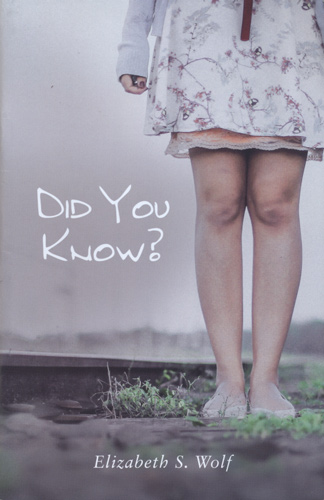 Subscribers to Rattle received a bonus with their Summer 2019 issue: Rattle Chapbook Prize winner Did You Know? by Elizabeth S. Wolf.
Subscribers to Rattle received a bonus with their Summer 2019 issue: Rattle Chapbook Prize winner Did You Know? by Elizabeth S. Wolf.
When her mother was diagnosed with multiple sclerosis in the 60s, Wolf’s father conspired with doctors, friends, and family to conceal the truth from her, a secret he ends up taking to the grave, a family member the one to finally break the silence. Wolf’s poems are about this time in her family’s lives, the title drawing from the conversation in which Wolf finds out about her mother’s illness:
“Did you know?” she asked.
“Know what?” I responded.
“Did you know the secret?” she asked.
“What secret?” I responded.
[ . . . ]
Now there was an “us”:
the ones who did not know.
Following the revelation about her health, Wolf’s mother challenges the life she created behind the shield of her husband’s secrecy; Wolf the voice in her ear urging her to finally do whatever she wants.
Wolf writes in a straightforward voice, never losing readers in overly flowery language, instead focusing on clearly relating her mother’s story, giving her a voice when she was denied one by her husband for so long.
Reading Did You Know? is an intimate peek into an archaic practice—a husband able to dictate his wife’s medical care while hiding it from her—but as women are currently fighting for bodily autonomy while access to abortion is challenged, the chapbook ends up feeling incredibly current.
Review by Katy Haas
Spread the word!
2018 Jeffrey E. Smith Winners
 The Spring 2019 issue of The Missouri Review includes the 2018 Jeffrey E. Smith Editors’ Prize Winners.
The Spring 2019 issue of The Missouri Review includes the 2018 Jeffrey E. Smith Editors’ Prize Winners.
Fiction
“Salt Land” by Amanda Baldeneaux
Essay
“Jamilla” by Jo Anne Bennett
Poetry by Diane Seuss [pictured]
This annual contest closes October 1 each year, and in addition to publication, the winners each receive $5000. All entries are considered for publication.
Spread the word!
“Where Am I?” by Heather Sellers
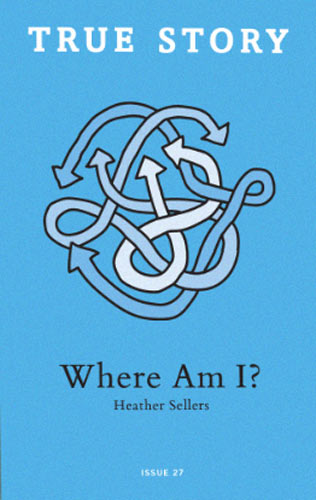 If my mother and I walk out of a store into the center of the mall or exit a building onto any town’s main street, there’s a 95% chance she’ll ask me which way we came from and which way we’re now headed. If we park in a crowded lot, she follows as I lead to her hidden car. When I’m with her, I am the navigator, the way-finder.
If my mother and I walk out of a store into the center of the mall or exit a building onto any town’s main street, there’s a 95% chance she’ll ask me which way we came from and which way we’re now headed. If we park in a crowded lot, she follows as I lead to her hidden car. When I’m with her, I am the navigator, the way-finder.
In Issue 27 of True Story, Heather Sellers explores a ramped-up version of this particular problem with “Where Am I?”
The 33-page nonfiction piece begins in an airport, Sellers struggling to find her way out to her car. From here, we work back, finding this was always an issue, cultivated when she was young as her mother struggled with mental illness and her father with alcoholism. Knowing which way to turn, when it’s okay to turn on a red light, how to navigate a college campus or a familiar neighborhood, recognizing faces—this is all foreign to Sellers. However, Sellers writes all of this straightforwardly and clearly as if she’s describing how we can make it out of an airport, a route we can effortlessly follow, her words a way-finder at our side.
After tracing back to examine the possible source of this predicament, she puts a name to it: prosopagnosia or topographical agnosia. Once it has a name, it’s easier to understand and cope with, which leads to the deeper point of Sellers’ piece. In witnessing others struggle, she notes that she’s not uniquely alone, and she realizes the compassion and patience she shows others lost with or around her. This sympathy is missing when dealing with her own directional mishaps, the rest of the piece a steady reminder for readers to treat ourselves and others with more compassion as we find our ways through the world.
Review by Katy Haas
Spread the word!
Speer Morgan on the Resiliency of Literature
The basic stories in much of our canon of literature are hardly subtle. Their power and wisdom come from the discoveries about human nature and behavior through characters and their struggles. Beware of pride-bound, stubborn, pigheaded leaders—yes and beware of the idea that the themes of classic literature are “irrelevant” today. The resiliency of literature comes also in the clear and perfect expression of the moments and moods of life through language, many examples of which cannot be forgotten—Hamlet with the skull of his jester, Keats and his nightingale, or the sheer poignancy of Nick Carroway at the end of Daisy’s dock, looking out on the green light, thinking “So we beat on, boats against the current, borne back ceaselessly into the past.”
Speer Morgan, “Collisions,” The Missouri Review, Spring 2019
Spread the word!
‘One Little Secret’ by Cate Holahan
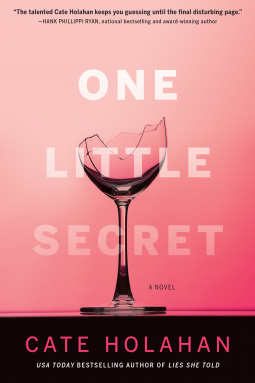 “People in glass houses should not throw stones”
“People in glass houses should not throw stones”
One Little Secret by Cate Holahan is a brilliantly written novel enabling the reader to feel suspense as they whizz through the chapters.
The characters within the novel are very thought out, and the reader is able to visualize their appearance as well as learn about their personalities through the words on the page. Gabby, who is a detective, is a strong female lead, and this is nice to read as she is seen as a feminist character. Each character adds their own input into the story and their lives are all intertwined through a series of events which will be revealed within the novel.
Each chapter is full of suspense, and they are short, so the reader is not left hanging or bored with the content. The plot is structured into two strands: before and after the murder.
The settings are beautiful within the book, and they can only be described as a paradisiacal haven where only the rich of the rich get to go. The story is set, for the most part, in a huge glass rental house, and though cliché, the saying “people in glass houses should not throw stones” perfectly applies to this novel. Pathetic fallacy is used a lot to set the tone of each chapter as the plot twists and turns.
As the reader, you go through a roller coaster of emotions throughout, deciding who to side with and trying to work out who is lying and who is telling the truth. And you constantly question yourself as to whodunit.
Overall, this was a very good novel by Holahan, and I will not hesitate to pick up another of her books in the future, as I read this one in only one weekend!
Review by Tom Walker
Spread the word!
CFS Contemporary Chicanx Writers
 Cutthroat: A Journal of the Arts is collaborating with Black Earth Institute on the publication of a major anthology of contemporary Chicanx writers. Until August 1, 2019, they are accepting submissions of Chicanx poetry and prose from across the country.
Cutthroat: A Journal of the Arts is collaborating with Black Earth Institute on the publication of a major anthology of contemporary Chicanx writers. Until August 1, 2019, they are accepting submissions of Chicanx poetry and prose from across the country.
The editors for this collection will be Luis Alberto Urrea, Pam Uschuk, Matt Mendez, Beth Alvarado, William Pitt Root, Carmen Calatayud, Carmen Tafolla, Octavio Quintanilla, Theresa Acevedo, Denise Chavez and Edward Vidaurre.
Submission Guidelines: “We are looking for Chicanx writers of poems and prose, from the rasquache to the refined. We want writing that goes deep into the culture and reveals our heritage in new ways. We want experiences, from blue collar gigs to going into higher education and pursuing PhDs. We want work that challenges. That is irreverent. That is both defiant and inventive. That is well-crafted. That is puro Chicanx. We acknowledge Chicanx is an attitude that may intersect with Latinx.”
For more information, visit the Cutthroat website.
Spread the word!
Chattahoochee Review Lamar York Prize Winners
The Chattahoochee Review Spring 2019 issue features the winners of the 2019 Lamar York Prize:
 Winner for Fiction
Winner for Fiction
Judge Kevin Wilson
“A Box of Photographs” by Peter Newall [pictured]
Winner for Nonfiction
Judge Adriana Páramo
“The Black Place” by Whitney Lawson
To read the judge’s commentary and see a full list of finalists, click here.
Entries for the Lamar York Prize are accepted from November 1 – January 31 of each year. In addition to publication, winners receive a prize of $1000.
Spread the word!
“Pro-Choice Stories” – Jellyfish Review
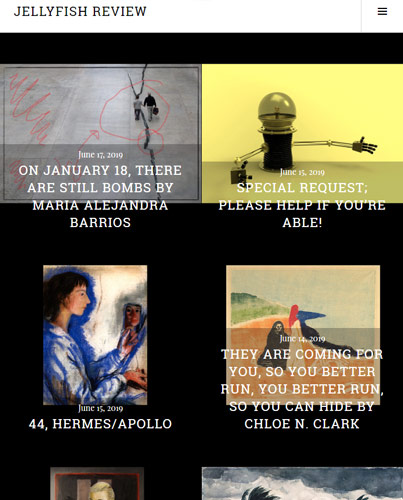 In response to the recent abortion bans in the United States, Jellyfish Review has been publishing a series of “Pro-Choice stories” with their usual selections. In the days surrounding the bans, my social media accounts exploded with people in my life coming forward with their own abortion stories, each of their needs and wants behind their choices unique. The Pro-Choice stories of Jellyfish Review mimic this: varying voices and points of view from different walks of life, all of them valid.
In response to the recent abortion bans in the United States, Jellyfish Review has been publishing a series of “Pro-Choice stories” with their usual selections. In the days surrounding the bans, my social media accounts exploded with people in my life coming forward with their own abortion stories, each of their needs and wants behind their choices unique. The Pro-Choice stories of Jellyfish Review mimic this: varying voices and points of view from different walks of life, all of them valid.
“Now That I’m Being Honest” by Holly Pelesky is addressed to the child the narrator planned to abort and didn’t, back before she found her voice, highlighting how important the ability to make a choice is in a life. In “A Fetus Walks into a Bar,” Jonathan Cardew’s imagined fetus is cold-blooded and gun-toting, leading readers to consider the rights afforded gun owners vs. uterus owners.
“None of It Was Easy” by Meghan Louise Wagner is a short, thirteen-part nonfiction piece that walks through each step, from the first hint that Wagner is pregnant to the afternoon the day of her abortion, ending with the sentence “I felt sick and empty but, most of all, I felt relieved,” her relief palpable.
Filled with tension is “The Morning After” by Andrea Rinard, a mother supporting her daughter after her daughter’s assault, the desire to protect her battling with the knowledge that she must let her daughter make her own choices.
The stories continue, each different, each important. The editors include links to pro-choice organizations after every piece, inviting readers to continue to support the choices others make for their bodies, all as different and important and valid as the stories Jellyfish Review presents.
Review by Katy Haas
Spread the word!
Writers Consider #MeToo Now
 The Courtship of Winds each issue asks five questions of writers whose work has previously appeared in the online publication. The Winter 2019 Digital Forum invited Perle Besserman [pictured], Sandra Kohler, Denise Kline, and Jennifer Page to respond to questions to discuss how they see the #MeToo movement now – post initial profound effect, post backlash, post Kavanaugh hearings, and post Christine Blasey Ford testimony.
The Courtship of Winds each issue asks five questions of writers whose work has previously appeared in the online publication. The Winter 2019 Digital Forum invited Perle Besserman [pictured], Sandra Kohler, Denise Kline, and Jennifer Page to respond to questions to discuss how they see the #MeToo movement now – post initial profound effect, post backlash, post Kavanaugh hearings, and post Christine Blasey Ford testimony.
The writers each responded to five questions posed by the editors, including the Kavanaugh hearings, Trump’s mocking Al Franken’s stepping down, “utilitarian calculus” as addressed by Sonia Sadha, the impact of movements like this, and any inherent ‘dangers’ for men and women in our current climate of accusations and speaking up.
Spread the word!
‘Bicycle/ Race’ by Adonia E. Lugo
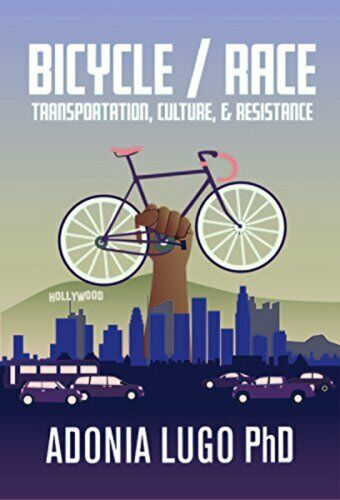 In “Bicycle/ Race: Transportation, Culture and Resistance,” Dr. Adonia Lugo brings her anthropology dissertation research into a readable and accessible book, documenting the intersection of race, transportation inequality and bicycling. As a mixed race Chicanx, having grown up in Orange County, California, Lugo explores resistance against car culture as well as her own place in bike activism. Where does she stand in a majority white-led movement? Lugo’s book forces readers to understand the stakes of cars versus bikes, with particular consideration to history, race, and who gets left behind. Continue reading “‘Bicycle/ Race’ by Adonia E. Lugo”
In “Bicycle/ Race: Transportation, Culture and Resistance,” Dr. Adonia Lugo brings her anthropology dissertation research into a readable and accessible book, documenting the intersection of race, transportation inequality and bicycling. As a mixed race Chicanx, having grown up in Orange County, California, Lugo explores resistance against car culture as well as her own place in bike activism. Where does she stand in a majority white-led movement? Lugo’s book forces readers to understand the stakes of cars versus bikes, with particular consideration to history, race, and who gets left behind. Continue reading “‘Bicycle/ Race’ by Adonia E. Lugo”
Spread the word!
Sven Birkerts on Writing and Connection
“In my view, writing, at least literary writing, is not just a matter of inventing out of whole cloth or drawing on things we remember, but also of accessing sought-for words and connections. Do we, when we’re writing, reach in to actively find the parts of our next sentences, or are those ‘given’ to us? It often feels like the latter, which naturally makes me wonder through what agency. As Joseph Brodsky wrote somewhere, life is a gift, and where there is a gift there must be a giver.”
Sven Birkerts, “Losing, Finding, Improvising,” Agni 89
Spread the word!
‘The Author is Dead’ by Ches Smith
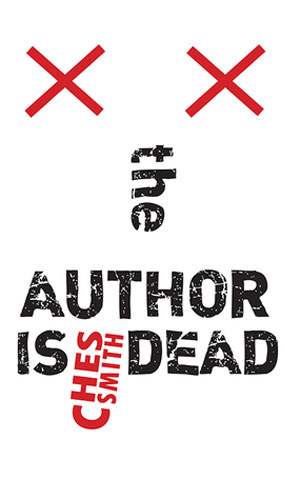 It’s nothing new for a novel’s key character to share his name with the book’s author. Past examples are Stephen King in Song of Savannah, Paul Auster in New York Trilogy, and Philip Roth in Operation Shylock. But Ches Smith’s protagonist, Ches Smith, is something apart and definitely a standout character in Smith’s new book, The Author is Dead. Try not to speculate on any detail in this book that might be drawn from the author’s life, except that it’s about a writer who writes a book titled The Author is Dead.
It’s nothing new for a novel’s key character to share his name with the book’s author. Past examples are Stephen King in Song of Savannah, Paul Auster in New York Trilogy, and Philip Roth in Operation Shylock. But Ches Smith’s protagonist, Ches Smith, is something apart and definitely a standout character in Smith’s new book, The Author is Dead. Try not to speculate on any detail in this book that might be drawn from the author’s life, except that it’s about a writer who writes a book titled The Author is Dead.
We meet Ches, the character, at Sugarville Mall. He carries his writings, his so called “loose-leaf chronicles,” in a black binder that’s always with him. Ches is intrigued by Thalia, lead singer with the Zombie Cowgirls, a “punk-country fusion” band. One short conversation with her and he’s hooked. It won’t be giving anything away to tell that Thalia very soon becomes his ghostly muse, since her otherworldly presence is key to this story’s setup.
Spread the word!
New eChapbook from 2River View
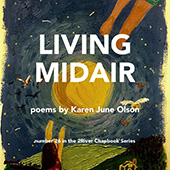 Living Midair by Karen June Olson is the newest offering in the 2River Chapbook Series. Numbering 26, these chapbooks are available open access online as well as free download using the PDF or “chap the book” feature which provides a booklet formatted print copy.
Living Midair by Karen June Olson is the newest offering in the 2River Chapbook Series. Numbering 26, these chapbooks are available open access online as well as free download using the PDF or “chap the book” feature which provides a booklet formatted print copy.
Author Karen June Olson is Professor Emerita of Early Care and Education at St. Louis Community College. Her poems in this collection examine nature, rural life, writing class, grief, death, and the familial relationships between daughters, mothers, grandmothers, and grandfathers.
From the title poem, “Living Midair”:
That night we sat on a veranda,
our glasses clinked a cheer or two
and we noticed the moon rise
from the water as waves
seemed to give the needed lift
and curled around its bright edges.
Spread the word!
“A Fractured Atlas” by Alex Clark & “Remember the Earth” by Angelique Stevens
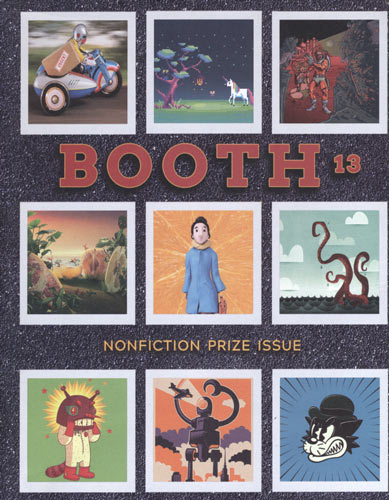 The cover of Booth’s Winter 2019 issue invites readers in with little square scenes of bright colors and caricatures, with text promising the Nonfiction Prize winners inside. Of the four pieces selected by Judge Brian Oliu, two touched me most: “A Fractured Atlas” by Alex Clark and “Remember the Earth” by Angelique Stevens.
The cover of Booth’s Winter 2019 issue invites readers in with little square scenes of bright colors and caricatures, with text promising the Nonfiction Prize winners inside. Of the four pieces selected by Judge Brian Oliu, two touched me most: “A Fractured Atlas” by Alex Clark and “Remember the Earth” by Angelique Stevens.
In the first, Clark recounts the fractured memory of being molested as a child by a friend’s father. Points of view are manipulated. “Her” becomes “you” which sometimes slips into first person: “you grow my nails out.” Throughout the piece, names are redacted, reduced to “( )” for the friend and “// //” for the father/abuser. The switches in POV, these redactions, font changes, and layering of text and image parallel the ways memory works. Details are left out, forgotten, rearranged, repeated, layered with other memories. Each page feels like decoding a map, like uncovering a new memory, a truly inventive piece of nonfiction.
In “Remember the Earth,” Stevens explores the idea of death, of what and who we leave behind. After her sister Gina’s suicide, she faces their tumultuous relationship and the years, months, and days that lead up to Gina’s death. She tries make sense of the timeline that brought both of them there. A tender and intimate work, Stevens packs so much raw emotional energy into one short piece, I had to read it in little bursts.
Both deserved of placing in the Nonfiction Prize, Clark and Stevens peel back layers of their memories. While constructed completely differently, both give stark and honest examinations of a moment in each of their lives.
Review by Katy Haas
Spread the word!
David Lynn Steps Down from Kenyon Review
Having served as editor of Kenyon Review since 1994, David Lynn will be stepping down next spring. The publication board, staff and college will be setting a timeline for the application process to consider candidates this upcoming fall or winter. The submission period for this year will be limited as a result of this transition. “In anticipation of a new editor’s arrival, we must maintain space in upcoming issues, so we will be limiting our open period of submissions to September 15-October 1, 2019,” writes Alicia Misarti, The Kenyon Review Director of Operations.
Fortunately, Lynn plans to remain active at Kenyon College, as the college president Sean M. Decatur notes, “We’ve already been in conversations on some ideas about other initiatives involving writing and literature for the College.”
Our thanks to David Lynn for his years of commitment to the literary community as editor, and our best to all at Kenyon Review during this time of change.
Spread the word!
Briar Cliff Review 2018 Contest Winners
Each year, The Briar Cliff Review holds a contest for poetry, fiction, and nonfiction with the winners receiving $1000 and publication. The following 2018 winners appear in the most recent issue (31, 2019):
 Poetry Winner
Poetry Winner
“I’d hoped to finish this poem before it came true” by Kateri Kosek
Fiction Winner
“Drink It Dry” by Rachel E. Hicks
Nonfiction Winner
“Trauma in Our Country” by Beverly Tan Murray [pictured]
The Briar Cliff Contest is open annually from August 1 – November 1.
Spread the word!
“Gentrification” by Tiana Clark
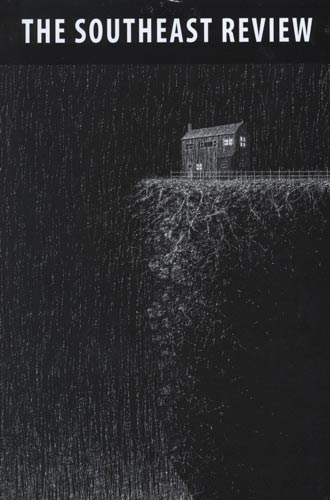 Spanning four pages of The Southeast Review (37.1), Tiana Clark’s “Gentrification” conjures up hidden details, the poem’s speaker talking in wisps, the ghosts of a summer past haunting the neighborhood in East Nashville where she used to live and which has now been gentrified. The speaker discusses the ways in which her body—a woman of color’s body—fits into this forgotten space:
Spanning four pages of The Southeast Review (37.1), Tiana Clark’s “Gentrification” conjures up hidden details, the poem’s speaker talking in wisps, the ghosts of a summer past haunting the neighborhood in East Nashville where she used to live and which has now been gentrified. The speaker discusses the ways in which her body—a woman of color’s body—fits into this forgotten space:
and I had never tried cocaine before,
until you tricked me [ . . . ]
and other men laughed and you laughed and I laughed too,but I didn’t know what was so funny. I didn’t know
when something was at my expense. I was the only girl there too.
I’ve always been the only girl there
inside a house with men, being duped by men, waxing their backs [ . . . ]
Repeatedly, she finds herself in moments like this, moments of emotional or physical violence: her boyfriend feeds her then calls her fat, she does drugs in a backseat, she has drunken fights in the street, she reveals the “vulnerable part” of her neck as she once “grasp[ed] at white men for attention,” her body becoming another gentrified space.
The scenes come quickly as if Clark is quickly scrawling these memories down before she can forget them, wrapping readers in the heat and tension of that summer, unflinching as she reveals the underbelly, the ugliness, the truths about her home and herself. Take some time to sink into “Gentrification,” then, like me, check out Clark’s books of poetry: I Can’t Talk About the Trees Without the Blood (University of Pittsburgh Press, September 2018), and Equilibrium (Bull City Press, 2016).
Review by Katy Haas
Spread the word!
Big Muddy – Volume 18 Number 2
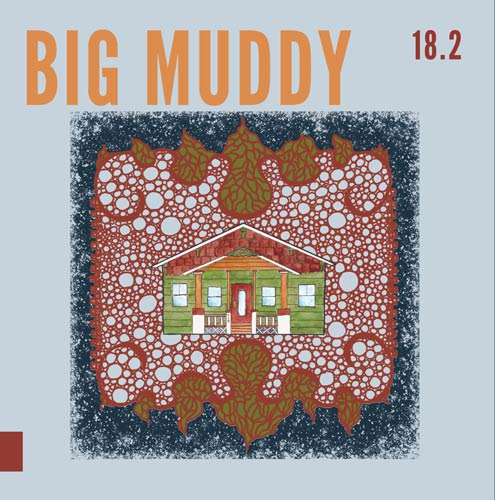 Big Muddy has proven to be one of my most favorite journals to read. The topics of its many stories and poems speak to that downhome, simpler type of life, even if sometimes it may not be a positive image or experience for those involved.
Big Muddy has proven to be one of my most favorite journals to read. The topics of its many stories and poems speak to that downhome, simpler type of life, even if sometimes it may not be a positive image or experience for those involved.
Within its pages, you’ll find fiction, poetry, and essays that really make you think about life and the situations we find ourselves in. Most of the work and topics are directly related to the ten states bordering the Mississippi River, all the way from the U.S./Canada border to the Gulf Coast through Louisiana.
Spread the word!
CNF Tiny Truths Tweet Contest
Creative Nonfiction invites writers to follow @cnfonline on Twitter, then tell a true story in the length of a tweet with #cnftweet to have that writing considered for publication in the “Tiny Truths” section of the print magazine.
 The Spring 2019 issue includes fourteen tiny essays on a range of topics including ‘caregiving for a parent with dementia’ (ChrisGNguyen), finding a single cigarette butt in the driveway every day (GitaCBrown), a family’s welcome back “as if no time had passed” (MPMcCune2), going home “in my dreams” (sevans_writer), ‘a musician explaining his song title’ (ZippyZey aka Karen Zey – pictured), doing the hokey pokey so as not to look a fool (by ridiculoustimes) and memories stirred by listening to the news (mjlevan).
The Spring 2019 issue includes fourteen tiny essays on a range of topics including ‘caregiving for a parent with dementia’ (ChrisGNguyen), finding a single cigarette butt in the driveway every day (GitaCBrown), a family’s welcome back “as if no time had passed” (MPMcCune2), going home “in my dreams” (sevans_writer), ‘a musician explaining his song title’ (ZippyZey aka Karen Zey – pictured), doing the hokey pokey so as not to look a fool (by ridiculoustimes) and memories stirred by listening to the news (mjlevan).
Spread the word!
The Cape Rock – Number 47
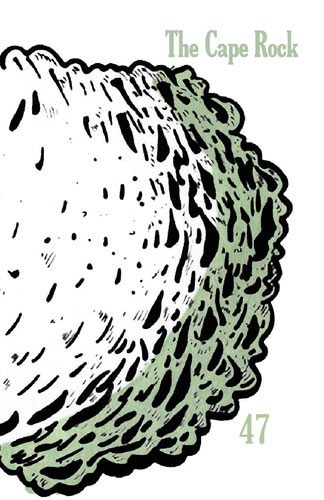 It only takes looking at some of the poem titles in The Cape Rock #47 to get that this slim volume published out of Southeast Missouri State University is poetry by and for the people: “Dad’s Skoal Can” and “Song of the Opossum” by January Pearson; “Toilet Cubicle” by Steve Denehan; “Trimming My Father’s Toenails” by Cecil Sayre; “Long Distance Dating for the Elderly” by Mark Rubin. Not meaning to be dismissive in perhaps attributing these works as common, the craft and skill exhibited in them speaks to the draw of the publication and the selective capabilities of a strong editorial staff.
It only takes looking at some of the poem titles in The Cape Rock #47 to get that this slim volume published out of Southeast Missouri State University is poetry by and for the people: “Dad’s Skoal Can” and “Song of the Opossum” by January Pearson; “Toilet Cubicle” by Steve Denehan; “Trimming My Father’s Toenails” by Cecil Sayre; “Long Distance Dating for the Elderly” by Mark Rubin. Not meaning to be dismissive in perhaps attributing these works as common, the craft and skill exhibited in them speaks to the draw of the publication and the selective capabilities of a strong editorial staff.
There are many single stunning contributions: Danielle Hanson’s poem titled “How to Tell This Wilted Dogwood Petal From Starlight” continues “Both have fallen from some level of sky. / Lay down and let’s discuss this rationally.” commanding the reader’s experience of the tangible and intangible; the three lines of “Years Later” by Ryan Pickney will leave readers speechless; Jeff Hardin’s “This Only Place” examines a series of moments under the poet’s microscope, opening, “This easy weightlessness along the earth I owe / to having heard the heron‘s wings the moment / it alighted then decided otherwise and lifted off.”
Offering multiple poems by individual writers is a welcome attribute, and the closing four by Claire Scott exemplify the ability of many of the poets included to manage a range of subject and style. Her poignant “At Eighty” reads at a bit of a romp thanks to line breaks like:
webs stitched
with tar
nished moments
emptied
of light
spun with mum
bled strands
of prayer to
missing gods
shape
less days
At 86 pages, 43 poets, 69 poems: The Cape Rock is a venerable journal of poetry that both makes connections and distinctions.
Review by Denise Hill
Spread the word!
‘The Wonderling’ by Mira Bartók
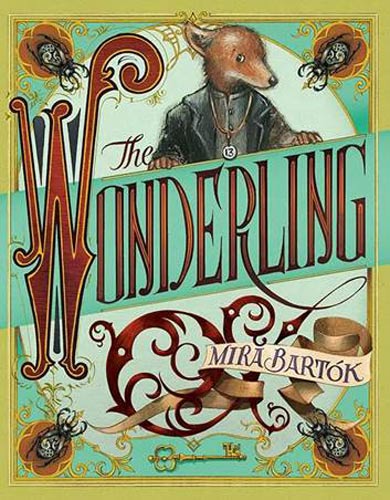 “Have you been unexpectedly burdened by a recently orphaned or unclaimed creature? Worry not! We have just the solution for you!” Welcome to the Home for Wayward and Misbegotten Creatures!
“Have you been unexpectedly burdened by a recently orphaned or unclaimed creature? Worry not! We have just the solution for you!” Welcome to the Home for Wayward and Misbegotten Creatures!
Author/illustrator Mira Bartók’s debut novel follows the story of a one-eared fox groundling (human-animal hybrid) named Thirteen. As if having one ear isn’t bad enough, Thirteen was abandoned in a grim-filled orphanage under the control of a wretched villainess called Miss Carbunkle. But the turn of events led to unexpected paths, both good and bad. Thirteen’s gut-wrenching encounters with brutality, deprivation, and unappetizing Dickensian roads are intertwined with gentle humor, uplifting vibes, and epic journeys.
Music and friendship play essential roles in the story. This explains why, in spite of the rouge-ish undertakings of rouge-ish characters, any reader will surely immerse oneself with the rollercoaster ride of events and keep the pages turning. Bartók’s writing draws rich kaleidoscopes of characters, steampunk setting, and sensational quests. The delightful illustrations brought a new level of charm to this adventure, making the whole experience undeniably jam-packed with surprises to the brim.
Blend in Miss Peregrine’s characters with the woeful mishaps in A Series of Unfortunate Events, then top it off with the legendary tale of King Arthur, and there you have it! The Wonderling! In a nutshell, The Wonderling takes its readers into a world of infinite possibilities.
Don’t let people tell you that this book is just for children, because adventure has NO age limit!
Review by Mary Kristine P. Garcia
Spread the word!
Cave Wall Poetry Revision Issue
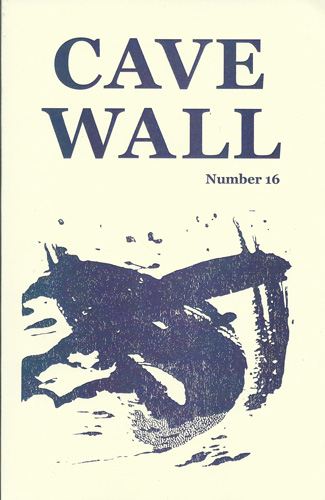 Cave Wall 15 includes a focus on revision. The ‘artwork’ for this issue consists of fifteen early draft images of some of the poems included. The cover art is actually Emma Bolden’s draft of “Easter Sunday.” Other authors whose drafts are included: Matthew Thorburn, Billy Reynolds, Chelsea Wagenaar, Jessica Cuello, Peter Kline, and Molly Spencer.
Cave Wall 15 includes a focus on revision. The ‘artwork’ for this issue consists of fifteen early draft images of some of the poems included. The cover art is actually Emma Bolden’s draft of “Easter Sunday.” Other authors whose drafts are included: Matthew Thorburn, Billy Reynolds, Chelsea Wagenaar, Jessica Cuello, Peter Kline, and Molly Spencer.
In addition, Cave Wall interviewed poets from this issue about their revision process and published those as a PDF on their website. Poets interviewed include Kasey Jueds, Matthew Thorburn, Tori Reynolds, Emma Bolden, Christopher Buckley, Molly Spencer, Billy Reynolds, Peter Kline, Carrie Green, Elizabeth Breese, John Sibley Williams, Chelsea Wagenaar, Lola Haskins, and Celisa Steele.
This issue combined with these Q&As would make an excellent teaching resource!
Spread the word!
“Dayspring” by Anthony Oliveira
 It was the illustration by Ricardo Bessa that originally drew me to Anthony Oliveira’s [pictured] short and poetic “Dayspring.” The image caught my eye as I scrolled down the front page of Hazlitt: browns and tans and reds, one man lying on another’s chest, their beards brushing; the embracing figures exude warmth and intimacy as sunlight filters through leaves above them. The story behind this depiction imagines (an unnamed) John, “the disciple whom he loved,” as Jesus’ lover in the days before the crucifixion.
It was the illustration by Ricardo Bessa that originally drew me to Anthony Oliveira’s [pictured] short and poetic “Dayspring.” The image caught my eye as I scrolled down the front page of Hazlitt: browns and tans and reds, one man lying on another’s chest, their beards brushing; the embracing figures exude warmth and intimacy as sunlight filters through leaves above them. The story behind this depiction imagines (an unnamed) John, “the disciple whom he loved,” as Jesus’ lover in the days before the crucifixion.
Writing in short poetic bursts, Oliveira roots the story in two religious parables or folktales, one involving a donkey, the other involving a nun. The conversation shows Jesus’ words in red, the two speaking in modern vernacular, including “dudes” and “what the fucks,” making the characters more relatable. The red is striking on the screen whenever Jesus speaks, and these two stories give us something to come back to—something to be anchored to in the chaos that follows.
I couldn’t help thinking of Madeline Miller’s The Song of Achilles while reading “Dayspring” as both pieces of writing display a mythological queer relationship of love and gentleness with a strong foreshadowing of violence and tragedy. Knowing the story of Jesus and his crucifixion, you can guess where Oliveira ends up taking us: to Gethsemane where everything falls apart, where Jesus is arrested, and the chain of events leading to his death begins, only this time we see it through the eyes of the one he loved.
While the piece is short and a sparsely written, the language is strong and beautifully built up. Oliveira writes with a poetic voice that eases readers in and creates the warmth that Ricardo Bessa’s illustrations kindle.
Spread the word!
‘Too Many Questions About Strawberries’ by Jen Hirt
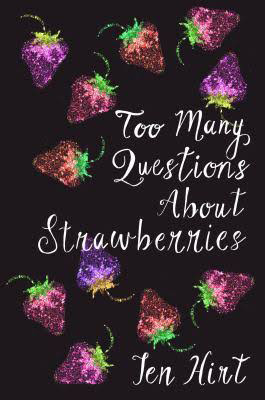 Brandi Pischke’s cover art of sparkly strawberries invites us into Jen Hirt’s book of poems, Too Many Questions About Strawberries. Can we expect a romp through a garden or farmer’s market? Not necessarily, though Hirt’s book takes us through fun, rowdy poems, as well as challenging ones that do, in some cases, concern plant life.
Brandi Pischke’s cover art of sparkly strawberries invites us into Jen Hirt’s book of poems, Too Many Questions About Strawberries. Can we expect a romp through a garden or farmer’s market? Not necessarily, though Hirt’s book takes us through fun, rowdy poems, as well as challenging ones that do, in some cases, concern plant life.
Let’s start with “Why not malachite for resurrection.” In this poem, an apartment’s appeal is heightened because its back steps are perfect for a container garden.
Continue reading “‘Too Many Questions About Strawberries’ by Jen Hirt”
Spread the word!
Free Audiobooks for Teens
 There’s still a lot of summer left and many books titles to enjoy from Sync Audiobooks for Teens free summer program.
There’s still a lot of summer left and many books titles to enjoy from Sync Audiobooks for Teens free summer program.
Each week, Sync provides two paired titles for free download using Overdrive. The titles include both non-fiction and a wide genre range of fiction. Once the week is over, the titles can no longer be downloaded, but the site has the previous books listed with descriptions so listeners can find the titles via their local library or other audio venue. [Pictured: The First Time She Drowned by Kerry Kletter, one of the titles this week.]
A great way to encourage summer reading for teens, for reluctant readers, and for adults who aren’t afraid to cross over!
Spread the word!
Rattle Tribute to Instagram Poets
 The Summer 2019 issue of Rattle includes a “Tribute to Instagram Poets.” The editor’s preface explains that the poems were originally published on Instagram, which uses captions that are included along with the poems. The editors assert that the poems were selected based “on their own merits and not the popularity of their authors.”
The Summer 2019 issue of Rattle includes a “Tribute to Instagram Poets.” The editor’s preface explains that the poems were originally published on Instagram, which uses captions that are included along with the poems. The editors assert that the poems were selected based “on their own merits and not the popularity of their authors.”
Some works include long poetic commentary, such as Benjamin Aleshire’s “Good Manners,” while others, such as Luigi Coppola’s and Jeni D La O’s only include a user name and series of hashtags. When applied, the hashtags range from simply labeling the obvious (#poetry #poem) to adding to the poetic image/text in the Instagram, as in Vini Emery’s: “All of the things that have been done to me have been done with out me.” hashtagged: #disassociation #trauma #power. Because the image is of handwritten text, it’s actually difficult to decipher if there is a space or not between “with” and “out,” which seems fitting for the work that this should be ambiguous.
Still other poems, such as Raquel Franco’s, add comment text without hashtags: “You are more than paper thin. / You are more than sad girl. / You are ink + paragraphs, / an anthology of purpose.” with “You are more than your circumstance.” as added comment.
A unique feature to include in this issue of Rattle, and one that opens whole new dialogues for poetry writing, reading, and analysis.
Review by Denise Hill
Spread the word!
‘Country House’ by Sarah Barber
Knowing you can no longer build
with it or kill, a needle-point-covered brick
hugs itself.—from “Doorstop”
At eighty-nine pages, plus extensive notes, Sarah Barber‘s Country House—winner of the Pleiades Press Editors Prize for Poetry—offers a plethora of material for a reader to draw out shared experience, contemplate history, raise questions, engage thoughtful research, and marvel at linguistic nuances. My own way into the text is undoubtedly as personal as it is unique, and I believe another reader would see something slightly, or maybe completely, different than I do in the poetry.
Spread the word!
Malahat Review Contest Winners
The Spring 2019 issue of The Malahat Review features winning entries from two of their annual contests:
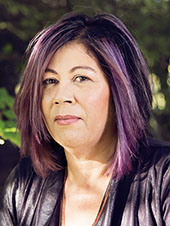 2018 Constance Rooke Creative Nonfiction Prize
2018 Constance Rooke Creative Nonfiction Prize
Judge Lynne Van Luven
“Found Objects” by Rowan McCandless [pictured]
2019 Open Season Awards
Poetry
Judge Shane Book
“Timepiece” by Rami Schandall
Fiction
Judge Carmelinda Scian
“Exile” by Janika Oza
Creative Nonfiction
Judge Kyo Maclear
“Letters To My Mother” by Lishai Peel
Spread the word!
‘The Patron Saint of Lost Girls’ by Maureen Aitken
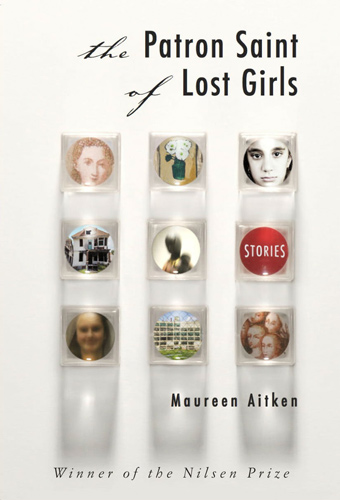 Maureen Aitken’s linked short stories, The Patron Saint of Lost Girls, is the winner of the 2018 Nilsen Prize, awarded to American writers who have not yet published a novel. The fourteen stories follow Mary, a sometimes artist, struggling through the economic recession in Detroit in the 1970s and 1980s. Told in the first-person point of view, Aitken’s stories are intimately close to Mary’s life and relationships all the while reflecting more broadly on the Midwest. Aitken’s stories are small and intimate but backed by the weight of broader themes: urban decay and what it means to survive as a woman.
Maureen Aitken’s linked short stories, The Patron Saint of Lost Girls, is the winner of the 2018 Nilsen Prize, awarded to American writers who have not yet published a novel. The fourteen stories follow Mary, a sometimes artist, struggling through the economic recession in Detroit in the 1970s and 1980s. Told in the first-person point of view, Aitken’s stories are intimately close to Mary’s life and relationships all the while reflecting more broadly on the Midwest. Aitken’s stories are small and intimate but backed by the weight of broader themes: urban decay and what it means to survive as a woman.
Continue reading “‘The Patron Saint of Lost Girls’ by Maureen Aitken”
Spread the word!
‘Leopard Lady: A Life in Verse’ by Valerie Nieman
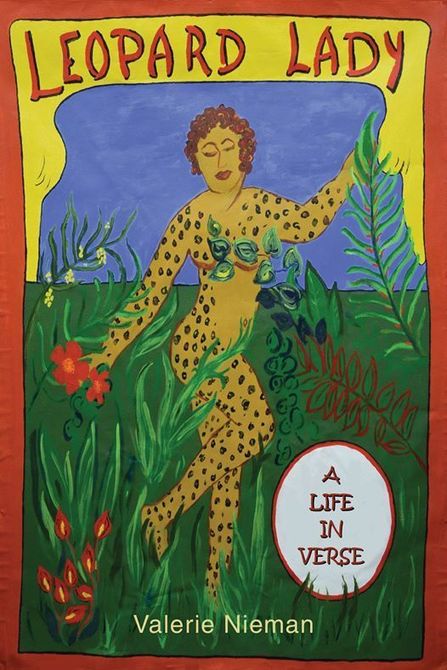 Valerie Nieman’s Leopard Lady: A Life in Verse sweeps aside everything you might think about sideshow and carnival performers of the mid-20th century. Her poems open up the private life of a mixed-race woman, Dinah, the titular Leopard Lady.
Valerie Nieman’s Leopard Lady: A Life in Verse sweeps aside everything you might think about sideshow and carnival performers of the mid-20th century. Her poems open up the private life of a mixed-race woman, Dinah, the titular Leopard Lady.
Continue reading “‘Leopard Lady: A Life in Verse’ by Valerie Nieman”
Spread the word!
Looking for a Lit Mag to Run?
 In his Spring 2019 “Welcome Readers” section, founder and editor M. Scott Douglass explains his plan to “retire from editing” Main Street Rag.
In his Spring 2019 “Welcome Readers” section, founder and editor M. Scott Douglass explains his plan to “retire from editing” Main Street Rag.
In making such a proclamation, Douglass comments, “the assumption is that you (I) are/am going out of business. That’s not the plan.” Having already sold off the production equipment for the publishing arm of MSR, Douglass is moving to the next step: “find a suitable replacement to edit the journal (and possibly books). I’d like to be able to bring this person along slowly, train them in the use of software, deadlines, scheduling, etc., but as soon as you hang a sign that says, ‘Looking for new leadership,’ again, everyone thinks you’re on your deathbed and avoids you.”
“We’re not dying. I’m not dying. We have no debt, so we’re not in financial difficulty.” Instead, Douglass notes, after nearly twenty-five years, it’s just time for him to focus on his own “muse” and get out from behind the desk to travel more.
“So, if you know someone looking to take over a literary house who’s willing to put in some training time, send them my way. There may be a place for them here.”
Spread the word!
‘Something Like the End’ by Ashley Morrow Hermsmeier
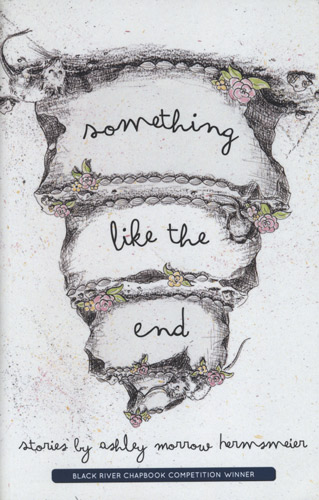 Ashley Morrow Hermsmeier dedicates Something Like the End—winner of the Fall 2017 Black River Chapbook Competition—to “the strange and lonely,” appropriate when the characters of her six-story chapbook are living lives that are just that: a bit strange and a bit lonely.
Ashley Morrow Hermsmeier dedicates Something Like the End—winner of the Fall 2017 Black River Chapbook Competition—to “the strange and lonely,” appropriate when the characters of her six-story chapbook are living lives that are just that: a bit strange and a bit lonely.
A woman prepares for an oncoming plague-like wave of bees, and, alone, faces that there are other things to be cautious of in the end of days; a city experiences an unending earthquake; a woman drawn to a mysterious stray cat can’t help thinking about her ex; a woman buries and reburies zombified past versions of herself that keep showing up at her door, versions that died so she could keep living; a futuristic assisted suicide is advertised, its five simple steps outlined for interested parties; and a beauty and beast couple can’t stop dancing as the world ends around them.
While short, each piece manages to push the boundaries of what’s expected. Love stories are surrounded by ruin, break-up stories are haunted by feral animals and zombies, and in each piece, we see the complex ways in which we interact with other humans, or how we interact with the earth that is rapidly changing around us.
Morrow Hermsmeier’s work in this chapbook is imaginative and arresting as it offers solidarity to the strange, lonely reader.
Review by Katy Haas
Spread the word!
Gulf Coast 2018 Prize Winners
The newest issue of Gulf Coast (31.2) is chock-full of award winning writing!
2018 Barthelme Prize
Judge Laura van den Berg
 Winner
Winner
“Something Clear” by Sarah Minor [pictured]
Honorable Mentions
“Hunger” by Yi Jiang
“Some Weather” by Aliceanna Stopher
2018 Translation Prize in Poetry
Judge Ilya Kaminsky
Co-Winners
“Air Raid” by Polina Barskova, Transl. by Valzhyna Mort
“Colonies of Paradise” by Matthias Göritz, Transl. by Mary Jo Bang
Honorable Mention
“Nobility” by Álvaro Lasso Transl. by Kelsi Vanada
2018 Beauchamp Prize in Critical Art Writing
Judge Wendy Vogel
Winner
“A Long, Dull Shadow: Georg Baselitz’s Legacy of Misogyny” by Maura Callahan, originally published on Momus
Honorable Mentions
“Playing in the Institute: On Tag at the ICA Philadelphia” by C. Klockner
“Intimate Structures: Dorothea Rockburne at Dia: Beacon” Chloe Wyma
For a full list of entries, finalists, links to work, and information about these annual contests, visit Gulf Coast.
Spread the word!
Fundraising Raffle for Nina Riggs Poetry Award
 As previously announced, Cave Wall is fundraising to establish the Nina Riggs Poetry Award. They are sooooo close to their target amount and are now offering a sweet GIANT RAFFLE to help them reach their goal.
As previously announced, Cave Wall is fundraising to establish the Nina Riggs Poetry Award. They are sooooo close to their target amount and are now offering a sweet GIANT RAFFLE to help them reach their goal.
Check out the HUGE list of prizes here. Everyone who donates any amount will be entered in the raffle. A win no matter what!
In discussing the award with me, Cave Wall Editor Rhett Trull offered this beautiful reminiscence:
When Nina got pregnant, she was told by a poetry colleague, “Oh no, here come the motherhood poems.” Years later, when I got pregnant, a different colleague told me, “Whatever you do, just don’t start writing motherhood poems.” We knew they were teasing, but it bothered us. And of course, we ignored it and wrote whatever we wanted to write, whatever we were moved to write. Because that’s what we do as poets, all of us: we write toward the heart. I used to hear, all the time, “Don’t write poems about grandmothers and dead pets.” Well, that’s ridiculous. You can write about ANYTHING. Just write it well, write beyond subject and self, toward the greater truths to which all subjects lead us if we let them. At Cave Wall, we’ve published some beautiful poems about grandmothers and dead pets, once in the same poem and wow, is it a knockout. Anyway, Nina believed all subjects worthy of poetry. And I hope with this award, we can encourage and celebrate writing that mines the everyday for its beauty and truth, as well as writing about relationships and family and, yes, motherhood, too. All of it. All the small and big and wondrous things that connect us, that shine a light on the ordinary revealing that everything is extraordinary if we take a moment to see it.
Spread the word!
American Life in Poetry :: Peter Schneider
American Life in Poetry: Column 739
BY TED KOOSER, U.S. POET LAUREATE
I don’t suppose there are many of our younger readers who have started to worry about the possibility of memory loss, but I’d guess almost everybody over fifty does. Peter Schneider lives in Massachusetts and this is from his book Line Fence, from Amherst Writers and Artists Press.
Lost in Plain Sight
Somewhere recently
I lost my short-term memory.
It was there and then it moved
like the flash of a red fox
along a line fence.
My short-term memory
has no address but here
no time but now.
It is a straight-man, waiting to speak
to fill in empty space
with name, date, trivia, punch line.
And then it fails to show.
It is lost, hiding somewhere out back
a dried ragweed stalk on the Kansas Prairie
holding the shadow of its life
against a January wind.
How am I to go on?
I wake up a hundred times a day.
Who am I waiting for
what am I looking for
why do I have this empty cup
on the porch or in the yard?
I greet my neighbor, who smiles.
I turn a slow, lazy Susan
in my mind, looking for
some clue, anything to break the spell
of being lost in plain sight.
We do not accept unsolicited manuscripts. American Life in Poetry is made possible by The Poetry Foundation (www.poetryfoundation.org), publisher of Poetry magazine. It is also supported by the Department of English at the University of Nebraska, Lincoln. Poem copyright ©2006 by Peter Schneider, “Lost in Plain Sight,” from Line Fence (Amherst Writers and Artists Press, 2006). Poem reprinted by permission of Peter Schneider and the publisher. Introduction copyright ©2019 by The Poetry Foundation. The introduction’s author, Ted Kooser, served as United States Poet Laureate Consultant in Poetry to the Library of Congress from 2004-2006.
Spread the word!
April 2019 Award Winners
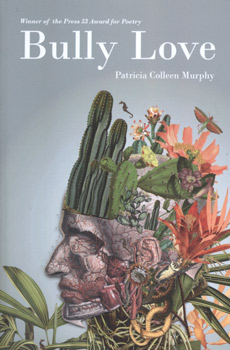 National Poetry Month may have ended in April, but you can keep the festivities kicking by checking out poetry contest winners published last month.
National Poetry Month may have ended in April, but you can keep the festivities kicking by checking out poetry contest winners published last month.
BOA Editions, LTD published the winner of the James Laughlin Award, Night Angler by Geffrey Davis, and the winner of the A. Poulin Jr. Poetry Prize, Documents by Jan-Henry Gray.
The A. Poulin Jr. Poetry Prize is annually award to honor a poet’s first book. Jan-Henry Gray’s Documents is rooted in the experience of living in America as a queer undocumented Filipino. The poems repurpose the forms and procedures central to an immigrant’s experience: birth certificates, ID cards, letters, and interviews. An excerpt, “Across the Pacific Ocean,” can be found at the publisher’s website.
The James Laughlin Award is presented by the Academy of American Poets, and judges selected Night Angler by Geffrey Davis as the 2018 winner. Night Angler “Reads as an evolving love letter and meditation on what it means to raise an American family.” Readers can find Davis’s second collection at the BOA Editions LTD website.
From Press 53, find the winner of the Press 53 Award for Poetry: Bully Love by Patricia Colleen Murphy. The poems in this collection examine the long-term effects of displacement, and how we form relationships with landscapes and lovers. Learn more about what Bully Love has to offer.
Bauhan Publishing released the winner of the 2018 May Sarton New Hampshire Poetry Prize. The Double Zero by Marilee Richards, according to Judge David Blair, “reminds us of what the country has gained in consciousness and freedom, . . . what sorrows and suicides we have left necessarily behind, as the bus pulls up at the curb in the don’t-you-get-it-yet years we have been motoring through lately.” Find out more here.
Keep your support of poetry going throughout the year, starting with these award winners.
Spread the word!
“Lady-Ghost Roles” by Laura Roque
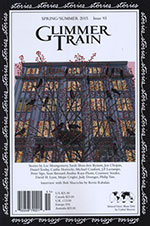 In the Spring/Summer 2019 issue of Glimmer Train, find “Lady-Ghost Roles” by Laura Roque. The short story explores the oncoming end of a crumbling relationship while casting the familiar break-up story in a new light: the narrator and her boyfriend, Javi, are both dead and are now stuck haunting their old home together.
In the Spring/Summer 2019 issue of Glimmer Train, find “Lady-Ghost Roles” by Laura Roque. The short story explores the oncoming end of a crumbling relationship while casting the familiar break-up story in a new light: the narrator and her boyfriend, Javi, are both dead and are now stuck haunting their old home together.
Tensions still palpable between them, the two watch as loved ones come and go, a realtor enters the picture, and a moving crew starts carrying away their belongings in the days after their deaths. Together, they reflect on moments of their relationship and what brought them to where they currently stand.
Early on, the narrator thinks about Javi: “[ . . . ] I need the universe to transport him somewhere I’m not, maybe hell, or the gym. In life, he’d spent more time touching dumbbells than me anyway.” As time passes, her views soften, though they never settle on a resolution.
Roque gives her narrator a tough exterior, her attitude remaining wry, never too sappy or sentimental. However, that doesn’t mean I didn’t read the last two pages with a lump growing in my throat, Roque’s world and character building too strong to resist.
With just enough gentleness and intimacy, Roque’s “Lady-Ghost Roles” is an inventive, enjoyable read.
Review by Katy Haas.
Spread the word!
A Gettysburg Tribute to Peter Stitt
 In 2016, Peter Stitt, founding editor of The Gettysburg Review, retired as editor-in-chief and Mark Drew stepped into the role. In May 2018, Stitt passed away at age 77.
In 2016, Peter Stitt, founding editor of The Gettysburg Review, retired as editor-in-chief and Mark Drew stepped into the role. In May 2018, Stitt passed away at age 77.
The Winter 2018 issue features a tribute to Stitt, with contributions from Floyd Collins, Sidney Wade, Philip Schultz, Linda Pastan, Albert Goldbarth, Christopher Howell, Hope Maxwell Snyder, Michael Waters, Rebecca McClanahan, and a closing poem by Peter Stitt, “Winter Search.”
Spread the word!
‘The Southern Review’ – Summer 2018
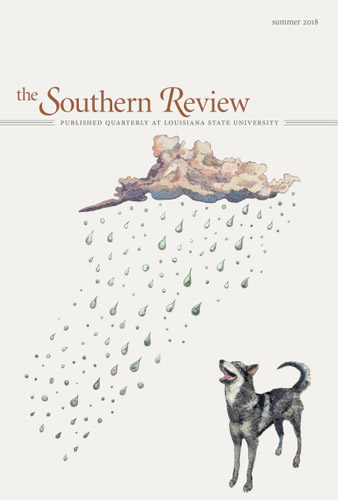 Sitting on the shelf of my university library, the Summer 2018 issue of The Southern Review intrigued me with its curious cover art by Gina Phillips, a New Orleans–based artist. Upon close inspection of the issue, I found quite a generous collection of portraits created by using mixed media and titled Friends and Neighbors. Gina Phillips shares her process of creating these portraits:
Sitting on the shelf of my university library, the Summer 2018 issue of The Southern Review intrigued me with its curious cover art by Gina Phillips, a New Orleans–based artist. Upon close inspection of the issue, I found quite a generous collection of portraits created by using mixed media and titled Friends and Neighbors. Gina Phillips shares her process of creating these portraits:
I begin by photographing the subject multiple times. Then I sketch from the photos, sometimes combining elements of several photos into one sketch. After the sketch is complete, I trace the drawing onto a transparency and enlarge the figure using an overhead projector; then I redraw it on a piece of plain muslin. At this point, I use acrylic washes to complete an underpainting. After the underpainting is dry, I load the piece onto a long-arm quilting machine and begin the process of appliqueing various combinations of fabric, thread, yarn, and hair. After rendering the figure with fabric and thread, I cut it out of its background and pin to the wall.
The results of this unique process are strikingly vibrant. As the artist notes, these portraits reflect the essence of the people and animals depicted in them.
Spread the word!
Kenyon Review Nature’s Nature
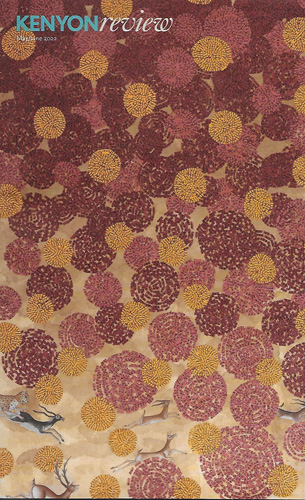 Kenyon Review Editor David Baker opens the May/June 2019 issue with his commentary on the annual “Nature’s Nature” theme. In response to our having witnessed “the Trump administration take further steps to release two hundred thousand more acres of public land—this time in Utah along the Canyonlands and the Green River—to ‘development,'” Baker notes that “Greed, stupidity, and fever for power are not new to our country or even our species—read Shakespeare, Dante, Homer—but the velocity of unfixable damages and the extent of losses are without precedent.”
Kenyon Review Editor David Baker opens the May/June 2019 issue with his commentary on the annual “Nature’s Nature” theme. In response to our having witnessed “the Trump administration take further steps to release two hundred thousand more acres of public land—this time in Utah along the Canyonlands and the Green River—to ‘development,'” Baker notes that “Greed, stupidity, and fever for power are not new to our country or even our species—read Shakespeare, Dante, Homer—but the velocity of unfixable damages and the extent of losses are without precedent.”
Baker asks, “Are we one or two generations away from the point of no return for environmental stability? Is ours the last generation with hope of preventing or slowing a massive disaster? Is it too late? The calculations come every week, with variables, but the constant alarm is the same.”
This is what compelled him, he recounts, “to curate a special feature on ecology and poetry . . . I wanted to showcase new poems that resisted such forms of power and that named one by one the spectacular, beautiful, and often endangered citizens of the natural world.”
Now an annual issue, the writers featured each year are purposefully diverse in that the publication does not choose the same authors to appear more than once. The compilation features twenty-seven new poems, one essay, and two portfolios of artwork. For a full list of content with some selections available to read online, visit the Kenyon Review.
